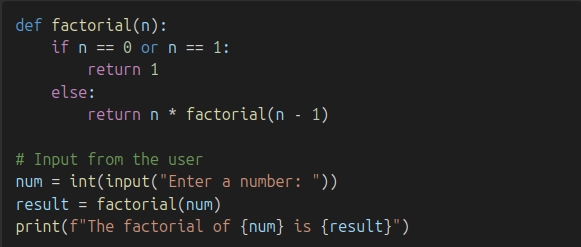Welcome to The Python Playground: A Beginner’s Guide to Python Mastery
Introduction
Welcome to The Python Playground! This blog is your ultimate destination to learn, explore, and master Python programming, one of the most versatile and powerful programming languages in the world. Whether you are a complete beginner or looking to refine your skills, this blog will provide you with a comprehensive understanding of Python, its applications, and how it can empower you to achieve your coding dreams.
In this inaugural post, we’ll explore why Python is such a popular programming language, what makes it unique, and what you can expect from this blog as we embark on this exciting journey together.
Why Python Is Popular
Python’s popularity has skyrocketed in recent years, and for good reason. Here are some key reasons why Python stands out among programming languages:
1. Ease of Learning
Python was designed with simplicity in mind. Its syntax resembles everyday English, making it an excellent choice for beginners. Here’s an example:
This straightforward code is a complete Python program. You’ll notice there are no complex syntax rules or intimidating symbols—just plain, easy-to-read text.
2. Versatility
Python is a general-purpose language that can be used in a variety of domains:
Web Development: Frameworks like Django and Flask make web development seamless.
Data Science and AI: Libraries like Pandas, NumPy, and TensorFlow power advanced analytics and machine learning.
Automation: Automate repetitive tasks with just a few lines of Python.
Game Development: Create simple to complex games with Pygame.
3. Massive Community Support
Python boasts a large, active community that is always ready to help. Whether you’re stuck on a bug or looking for advice, platforms like Stack Overflow, Reddit, and GitHub are teeming with Python enthusiasts.
4. Rich Ecosystem of Libraries
Python’s standard library is vast, and its third-party libraries are even more impressive. These libraries save you time and effort by providing pre-written solutions for common problems.
requests library to fetch data from the web:5. Career Opportunities
Python’s versatility makes it a highly sought-after skill in various industries. From software development to data analysis, knowing Python can open doors to lucrative career paths.
What You Can Expect from This Blog
The Python Playground is designed to cater to both beginners and intermediate learners. Here’s what you can look forward to:
1. Step-by-Step Tutorials
We’ll break down complex concepts into digestible lessons, starting with the basics and gradually moving to advanced topics.
2. Real-World Examples
Our posts will include practical examples and projects to help you understand how Python is used in real-world scenarios.
3. Cheat Sheets and Resources
From quick reference guides to curated lists of resources, we’ll provide everything you need to speed up your learning.
4. Hands-On Projects
Learn by doing! We’ll guide you through projects like building a web scraper, automating tasks, or even creating a simple game.
5. Regular Updates
Stay up-to-date with the latest Python trends, libraries, and best practices.
A Simple Python Program to Get You Started
Let’s dive into a simple program that demonstrates Python’s elegance. This program calculates the factorial of a number:
Explanation:
The function
factorialis defined recursively to calculate the factorial of a number.The user provides input, which is passed to the function.
The result is displayed using Python’s formatted string (f-string).
FAQs
Q1. Is Python free to use?
Yes, Python is open-source and free to use, even for commercial purposes.
Q2. Do I need prior programming knowledge to learn Python?
No, Python’s simplicity makes it an excellent first programming language.
Q3. What tools do I need to start coding in Python?
You’ll need:
Python installed on your system (Download Python)
A text editor or an Integrated Development Environment (IDE) like PyCharm or VS Code.
Q4. How long does it take to learn Python?
The basics can be learned in a few weeks, but mastering Python depends on how much time you dedicate to practice.
Q5. What are the best resources to learn Python?
Books: “Automate the Boring Stuff with Python” by Al Sweigart.
Websites: Python’s official documentation, Codecademy, and Coursera.
Communities: Stack Overflow and Reddit’s r/learnpython.
Closing Thoughts
At The Python Playground, we’re committed to making Python learning an enjoyable and enriching experience. Whether you want to build your first program or dive into advanced topics like data analysis or web development, this blog will guide you every step of the way.
So, are you ready to unlock the power of Python and start your coding journey? Stay tuned for our next post, where we’ll walk you through installing Python and setting up your development environment. Happy coding.







No comments:
Post a Comment